BRIEFLY NOTED: FOR 2024-04-17 We
The Frenchness of English; dog preferences; very briefly noted; Trying Again to Understand Recent Monetary Policy; Sundowning in America—Donald’s dementia—& England ca. 1900 as the Only True...
The Frenchness of English; dog preferences; very briefly noted; Trying Again to Understand Recent Monetary Policy; Sundowning in America—Donald’s dementia—& England ca. 1900 as the Only True Steampower-Industrial Society EVAR, & BRIEFLY NOTED: For 2024-04-15 Mo…
ONE VIDEO: Is English Just Badly Pronounced French?
It really is a creole that escaped from its bounds…
ONE IMAGE: Multiple Dog Beds, Dog Rugs, & Dog Cushions…
…but where does Rosie most prefer to hang out? In the dirt of the flowerbed:
Very Briefly Noted:
Economics: John Authors & al.: The Great Rates Descent Will Be Nasty, Brutish and Long: ‘Points of Return is launching The Year of Descending Dangerously, a suite of indicators that we will update monthly. The chances are that it will take longer and move more slowly than many now seem to anticipate, and that central bankers will need to keep treading cautiously. We hope that these indicators will help everyone find the right path…. … <https://www.bloomberg.com/graphics/2024-opinion-rate-cuts-covid-inflation-central-banks/?cmpid=BBD032624_AUT>
Economic History: Krishan Kumar (1979): Prophecy & Progress: the sociology of industrial and post-industrial society: ‘This view of the exotic nature of the formative period of industrialism has come to seem increasingly attractive, as new features alien to that period appear, or older ones reappear. So for instance George Steiner notes a widespread current alertness to, and anxiety about, violence and disorder. But, he observes, ‘when we lament safeties, courtesies, legalities now eroded, what we are in fact referring to is the belle epoque of middle class hegemony, notably in Western Europe, from about the 1830s to the Second World War.’ He cautions us against drawing topical comparisons on the basis of this ‘nagging sense of paradise lost’. For “far from being the historical rule, the stabilities, the general absence of violence, the law-abidingness, the sanctity of property and contract, the spaciousness of work and play which we associate, erroneously or not, with the epoch from Waterloo to the economic and social crises of the 1930s, were an exception, a rare and fragile entente between ruler and ruled... So far as Western history goes, the long peace of the nine¬ teenth century begins to look like a very special providence…” <https://archive.org/details/prophecyprogress0000kuma/page/328/mode/2up>
J. B. Bury: The Idea of Progress: An Inquiry into Its Origins & Growth (1931): ‘Thus, while Turgot might have subscribed to Voltaire’s assertion that history is largely “un ramas de crimes, de folies, et de malheurs,” his view of the significance of man’s sufferings is different and almost approaches the facile optimism of Pope—“whatever is, is right.” He regards all the race’s actual experiences as the indispensable mechanism of Progress, and does not regret its mistakes and calamities. Many changes and revolutions, he observes, may seem to have had most mischievous effects; yet every change has brought some advantage, for it has been a new experience and therefore has been instructive. Man advances by committing errors. The history of science shows (as Fontenelle had pointed out) that truth is reached over the ruins of false hypotheses… <https://archive.org/details/in.ernet.dli.2015.187286/page/n2/mode/1up>
Frank Manual: Prophets of Paris (1962): ‘The prophets made pronouncements on the same overwhelming questions confronting Western man: on the nature of love and the institution of the family, on the uses of philosophical history and its relation to social action, on the property system and the ideal mode of compensation for work, on the future of man’s religious predicament, on the relative virtues of reason and the imaginative faculty, on the merits of violent political revolution and the power of persuasion. If the prophets did not agree among themselves, they bequeathed a spectrum of moral alternatives, many of which have been revived—in modified form, to be sure—in the course of the last century. This rich body of teaching on the social, moral, and religious dilemmas of man has not been lost, even though the works themselves are now rarely read outside of an academic context… <https://archive.org/details/prophetsofparis0000fran>
Tech: David Pierce: Humane AI Pin review: not even close: ‘I want what Humane is selling even more than I expected…. I hadn’t realized how much of my phone usage consists of… one-step things, all of which would be easier and faster without the friction and distraction of my phone. But the AI Pin doesn’t work…. I hope Humane keeps going. I hope it builds in this basic functionality and figures out how to do more of it locally on the device without killing the battery. I hope it gets faster and more reliable. I hope Humane decides to make a watch, or smart glasses, or something more deliberately designed to be held in your hand. I hope it partners with more music services, more productivity apps, and more sources of knowledge about the internet and the world. I hope the price goes down… <https://www.theverge.com/24126502/humane-ai-pin-review>
MAMLM: Casey Newton: Humane’s Folly & AI hype hangover: ‘The tech industry's overpromising about generative AI is starting to catch up with it…. Hardware is so hard compared to software. The latter can launch as a minimum viable product; declare itself in beta and warn users that it may often break; and still attract users who will volunteer to test features, find bugs, and build community…. [Meanwhile,] consumers are being trained to lower their expectations for what AI can actually do for them…. [But] the exponential improvements that LLMs have made with each major new model release suggest that the current period of relative sluggishness may not last for long… <https://www.platformer.news/humanes-folly-and-the-ai-hype-hangover/>
Central Country: Minxin Pei: Say More…—PROJECT SYNDICATE: ‘It is very difficult to know what ordinary Chinese people think of Xi or his performance. On domestic policy issues, such as Xi’s handling of the economy, we can infer the public’s likely impression based on official economic statistics. And based on factors like deflation, high youth unemployment, and falling housing prices, it is safe to assume that Xi’s image as a capable steward of the economy has been dented. On geopolitics, however, it is harder to make even educated guesses. The Chinese government tightly controls the flow of information about the outside world, and most Chinese do not have as good a sense about geopolitics as they do about the domestic economy… <https://www.project-syndicate.org/onpoint/an-interview-with-minxin-pei-about-the-sentinel-state-china-economy-surveillance-repression-2024-04>
Plague: Tomas Pueyo: Coronavirus: The Hammer and the Dance (2020): ‘If we choose to fight hard, the fight will be sudden, then gradual. We will be locked in for weeks, not months. Then, we will get more and more freedoms back. It might not be back to normal immediately. But it will be close, and eventually back to normal. And we can do all that while considering the rest of the economy too…. First, you act quickly and aggressively…. If you hammer the coronavirus, within a few weeks you’ve controlled it and you’re in much better shape to address it. Now comes the longer-term effort to keep this virus contained until there’s a vaccine…. Efficient testing, efficient tracing, travel bans, efficient isolating and efficient quarantining… <https://tomaspueyo.medium.com/coronavirus-the-hammer-and-the-dance-be9337092b56>
Neofascism: Paul Campos: The dream world of the Trumpist intellectual: ‘At the core of… this… [is] the Fascist Contradiction…. that the Nation is… great and pure and chosen… but simultaneously decadent and depraved and almost past all saving, hence the need for its resurrection via the leadership of the Leader. This is amusingly (or maybe not) captured by Trump’s claims that America had ceased to be great by 2016, became great again for exactly four years, then ceased to be great on January 20th—or perhaps January 6th—2021, but can become great again in a few months… <https://www.lawyersgunsmoneyblog.com/2024/04/the-dream-world-of-the-trumpist-intellectual>
Cognition: Annalee Newitz: A brief, weird history of brainwashing:
‘L. Ron Hubbard, Operation Midnight Climax, and stochastic terrorism—the race for mind control changed America forever…. The Chinese word Hunter used at the hearing—xinao (), translated as “wash brain”—has a long history going back to scientifically minded Chinese philosophers of the late 19th century, who used it to mean something more akin to enlightenment. Yet Hunter’s sensational tales still became an important part of the disinformation and pseudoscience that fueled a “mind-control race” during the Cold War…. While the science never exactly panned out, residual beliefs fostered by this bizarre conflict continue to play a role in ideological and scientific debates to this day… <https://www.technologyreview.com/2024/04/12/1090726/brainwashing-mind-control-history-operation-midnight-climax/>
SubStack NOTES:
Economics: Trying Again to Understand Recent Monetary Policy in the United States: Aha! Here is a veritable pivot!:
Craig Torres: Powell Signals Rate-Cut Delay After Run of Inflation Surprises: ‘Fed chair said appropriate to give policy further time to work. Central bank can keep rates steady for ‘as long as needed’…. “The recent data have clearly not given us greater confidence and instead indicate that is likely to take longer than expected to achieve that confidence,” Powell said Tuesday in a panel discussion alongside Bank of Canada Governor Tiff Macklem at the Wilson Center in Washington. “Given the strength of the labor market and progress on inflation so far, it is appropriate to allow restrictive policy further time to work and let the data and the evolving outlook guide us,” he said… <https://www.bloomberg.com/news/articles/2024-04-16/powell-signals-high-rates-for-longer-due-to-persistent-inflation
Over the past fifteen years, since April 16, 2009, I see eight suberas of monetary policy in the United States:
Up until late 2013: gradual recognition that we are in an era of secular stagnation and that the monetary (and fiscal!) policy stimulative response has been insufficient and subpar.
Mid-2013: the “Taper Tantrum”—a significant monetary policy mistake that further stretched out the period of ænemic recovery.
Late-2013 through 2017: The full secular-stagnation normal.
2017 to March 2020: Failed liftoff away from the zero interest-rate lower bound.
March 2020 to February 2022: plague time.
February to July 2022: post-plague normalization.
July to September 2022: shift to restrictive monetary policy.
September 2022 to present: waiting for a shoe—any shoe—to drop.
I track these suberas by the behavior of the interest rate that ought to be key for managing the interest-sensitive segments of aggregate demand—structures and, through the exchange rate, net exports—the inflation-indexed Ten-Year Treasury TIPS, the blue line in the graph below:
(The red line is the Ten-Year Treasury nominal rate; the green line is the inflation breakeven.)
The February to July 2022 normalization brought the stance of monetary policy back to its high secular-stagnation era level. The July to September 2022 tightening brought the stance of monetary policy considered as the slope of the safe and collateralizable-asset numeraire intertemporal price system back to its pre-Great Depression level. (Do note that that level was, back then, seen as depressed: it was a time of “global savings glut”, after all.)
I confess that I thought that during the current subera (8)—waiting for a shoe, any shoe, to drop—the Federal Reserve would manage interest rates in an attempt to keep the long real rate—the Ten-Year Treasury TIPS—at a level of about 1.75%. Thus I was very surprised last fall when they let it march upwards to 2.5%, before using their jawbones to talk it back down to the pre-Great Recession level. But now they are allowing it to rise again. And I am not sure why. These interest rates will have effects that will inflict their full force on the economy in eighteen months. Do they really think that in the Fall of 2025 the economy will be in a state in which hitting it with demand-relevant real interest rates higher than any seen so far in this millennium will be appropriate?
I read this as the Federal Reserve hivemind having reached two conclusions:
It no longer believes that considerations as to what it thinks r* is can guide monetary policy and its adjustment.
The major risk is not a deep recession and a return to the zero interest-rate lower bound, but rather some sort of rebound in inflation and a consequent de-anchoring of inflation expectations.
We shall see:
Related:
Sundowning in America: Yastreblyansky is puzzled by what Donald Trump is trying to say:
Yastreblyansky: So Vicious, So Horrible, So Beautiful: ‘Trump finds a poem…. There is no evidence that Robert E. Lee ever said "Never fight uphill, me boys!"…. I'll note that the case against his being a good general makes Gettysburg its main example… because he insisted on sending attacking forces uphill, against his staff's advice…. "Never fight uphill" could have been a good summary of what he did wrong in the battle, but there's no evidence he ever recognized it…. I don't find any suggestions that there was one "big general" whose death made the crucial difference.… When you try to find out what story Trump is trying to tell here, you find only examples of Trump trying to tell the same story, three times, going back to May 2018…. It's a Lost Cause story, clearly, about how Lee's genius really was going to achieve the impossible, except for this dead general who failed to tell him about the uphill fighting thing before he died. If only he could have called! He was the one who said, "Never fight uphill, me boys!" but the message never reached the commander. (Incidentally, I'm pretty sure the one who really said "Never fight uphill" was the Western Zhou–dynasty master strategist Sunzi, in his Art of War: "It is a military axiom not to advance uphill against the enemy, nor to oppose him when he comes downhill")… <yastreblyansky.substack.com/p/so-viciou…>
If you wanted to turn what Trump is saying here into coherence, it would be this:
Thomas Jonathan “Stonewall” Jackson was Robert E. Lee’s chief lieutenant in the Army of Northern Virginia.
Thomas Jonathan “Stonewall” Jackson was killed by friendly fire at the Battle of Chancellorsville on May 10, 1863.
On July 3, 1863, Major General George Pickett commanding his three brigades (Kemper Garnett, and Armistad) plus four others (Lane, Brockenbrough, Marshall, Davis) charged uphill at the center of the Union Army of the Potomac line on Cemetery Ridge.
Nobody had told Robert E. Lee that the Army of the Potomac troops deployed on Cemetery Ridge were on, like, a ridge.
If anybody had, Lee would not have ordered the assult.
But Stonewall Jackson was dead, and there was nobody else in the Army of Northern Virginia to tell him.
Nor, apparently, did Robert E. Lee have eyes to see that the thing on his map marked “Cemetery Ridge” was in fact a ridge…






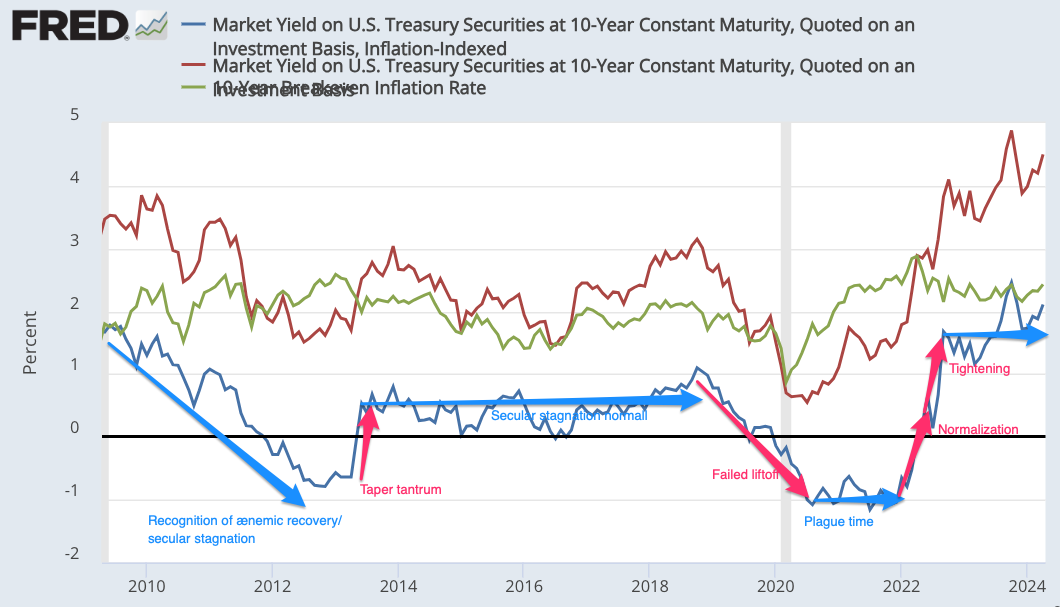
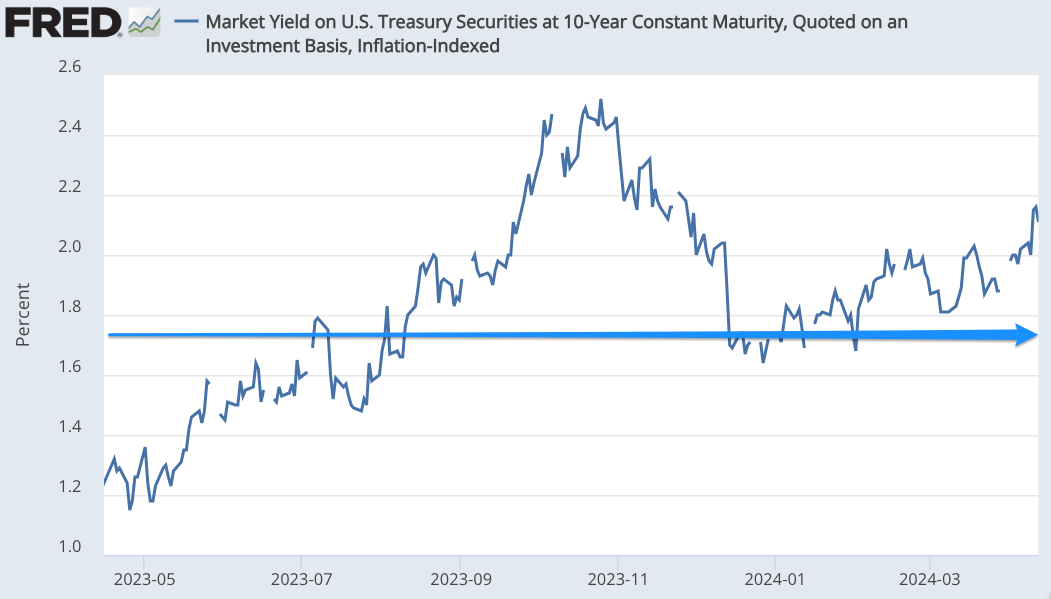
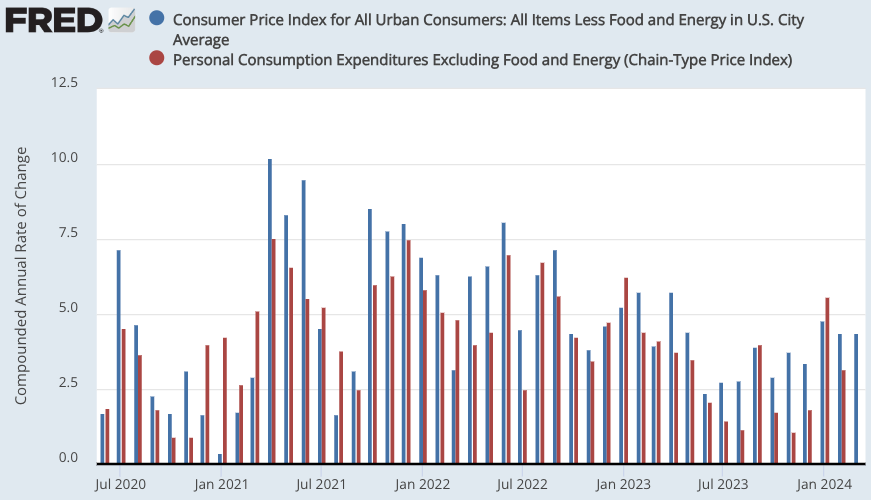
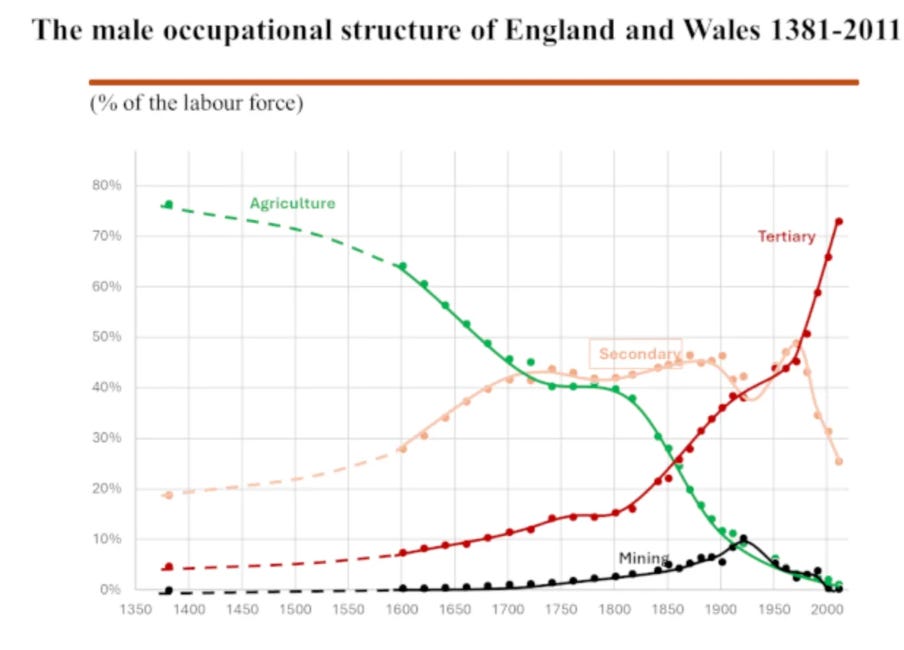
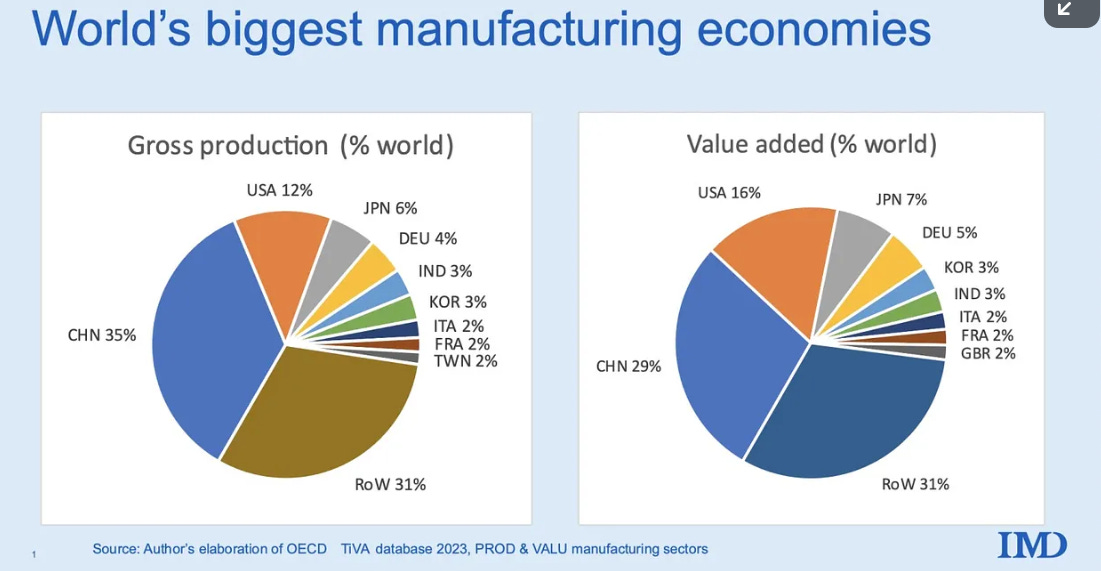
I'm not sure that creoles even recognize the concept of bounds.
Next question: is Japanese just badly pronounced Chinese plus badly pronounced English? (Answer is again: no, obviously.)
French is badly pronounced French though. (I like the language, but facts are facts.) And English is insanely pronounced English, and has been for a much longer time.
"Is English Just Badly Pronounced French?"
IInitially, I thought this was going to be a statement of the obvious, but it was far more informative than I expected. I particularly like the use of comparisons of the words to show their derivations and even the change of pronounciation as letters are dropped.
The dropping of the leading "h" is interesting, and very much the reverse of what I expected. I always assumed that the h-dropping was by the lower classes of the UK, not the upper classes. So I find it interesting that American English drops "h"s a lot, e.g. "herbs" become "erbs", while inconsistently "heron" keeps its hard "h", as does "hereditory". [How is herbarium pronounced in the US?]
While the French are apparently absorbing back some of their "mispronounced" French words, France periodically wants to purge the language of English words. Purity eventually becomes the enemy of the adaptability of the language. Just look at the clumsiness of German. English stands out in its acceptance of new words, and as is obvious when reading texts from the past, dropping words from common usage as the language changes with the times.